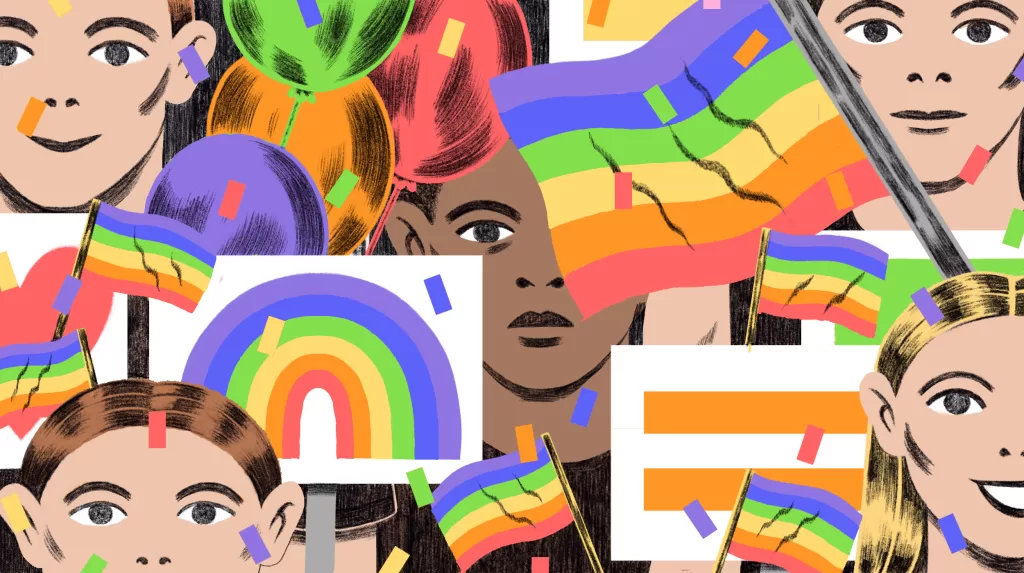The concept of privilege has been a topic of discussion for many years, especially when it comes to issues of race, gender, and sexuality. The idea that certain groups of people have inherent advantages over others based on their identity has been studied and debated by scholars and activists alike. One area where privilege is often overlooked is in the intersection of race and sexual orientation, specifically with regard to white gay privilege.
What is White Gay Privilege?
White gay privilege refers to the advantages that white gay men have in society due to their race and sexual orientation. This concept recognizes that while white gay men may still face discrimination based on their sexuality, they also benefit from the privilege that comes with being white. This privilege can manifest in a variety of ways, from greater access to education and employment opportunities to a higher likelihood of being accepted by society at large.
Examples of White Gay Privilege
One example of white gay privilege can be seen in the media. White gay men are often portrayed as the face of the LGBTQ+ community, with their experiences and perspectives being prioritized over those of people of color and other marginalized groups within the community. This can lead to a lack of representation and a perpetuation of harmful stereotypes.
Another example of white gay privilege is the way that white gay men are often able to navigate spaces that are traditionally hostile to LGBTQ+ people, such as corporate settings or political arenas. While discrimination based on sexual orientation is still prevalent in many of these spaces, white gay men may have an easier time gaining access and being accepted due to their race.
The Intersection of Race and Sexual Orientation
It is important to recognize that the experience of being a member of the LGBTQ+ community is not monolithic. LGBTQ+ people come from a variety of backgrounds and have a wide range of experiences based on their intersecting identities. For people of color who are also LGBTQ+, the experience of discrimination and marginalization is often compounded.
Black and Brown LGBTQ+ people face disproportionate levels of violence and discrimination, both within and outside of the LGBTQ+ community. They are often erased from discussions of LGBTQ+ issues, even though they face unique challenges that are not shared by white LGBTQ+ people. This erasure can lead to a lack of resources and support for LGBTQ+ people of color, and can perpetuate harmful stereotypes about people of color.
Addressing White Gay Privilege
In order to address white gay privilege, it is important to acknowledge its existence and the ways in which it manifests. White gay men must recognize the privilege that comes with their whiteness and work to dismantle the systems that perpetuate this privilege. This includes amplifying the voices of people of color within the LGBTQ+ community, supporting and advocating for policies that benefit all members of the community, and actively working to combat racism within LGBTQ+ spaces.
Additionally, it is important for people of color within the LGBTQ+ community to be given a platform to share their experiences and perspectives. This means creating spaces where they feel safe to speak out, and actively seeking out and listening to their voices. It also means recognizing the unique challenges that they face and working to address them in a meaningful way.
Conclusion
White gay privilege is an often-overlooked aspect of privilege that exists at the intersection of race and sexual orientation. While white gay men may still face discrimination based on their sexuality, they also benefit from the privilege that comes with being white. This can manifest in a variety of ways, from greater access to education and employment opportunities to a higher likelihood of being accepted by society at large. In order to address white gay privilege, it is important to recognize its existence and work to dismantle the systems that perpetuate it. This means amplifying the voices of people of color within the LGBTQ+ community and actively working to combat racism within LGBTQ+ spaces. By doing so, we can create a more inclusive and equitable community that recognizes the diversity and intersectionality of its members.
It is also important to recognize that addressing white gay privilege is just one piece of a larger puzzle. We must continue to work towards dismantling all forms of privilege and oppression, including those based on race, gender, sexuality, ability, and more. Only by recognizing and addressing these systems of power can we create a more just and equitable society for all.
In conclusion, white gay privilege is a real and pervasive issue that must be addressed within the LGBTQ+ community. By recognizing its existence and working to dismantle the systems that perpetuate it, we can create a more inclusive and equitable community that recognizes the diversity and intersectionality of its members. Let us continue to work towards a more just and equitable society for all.

